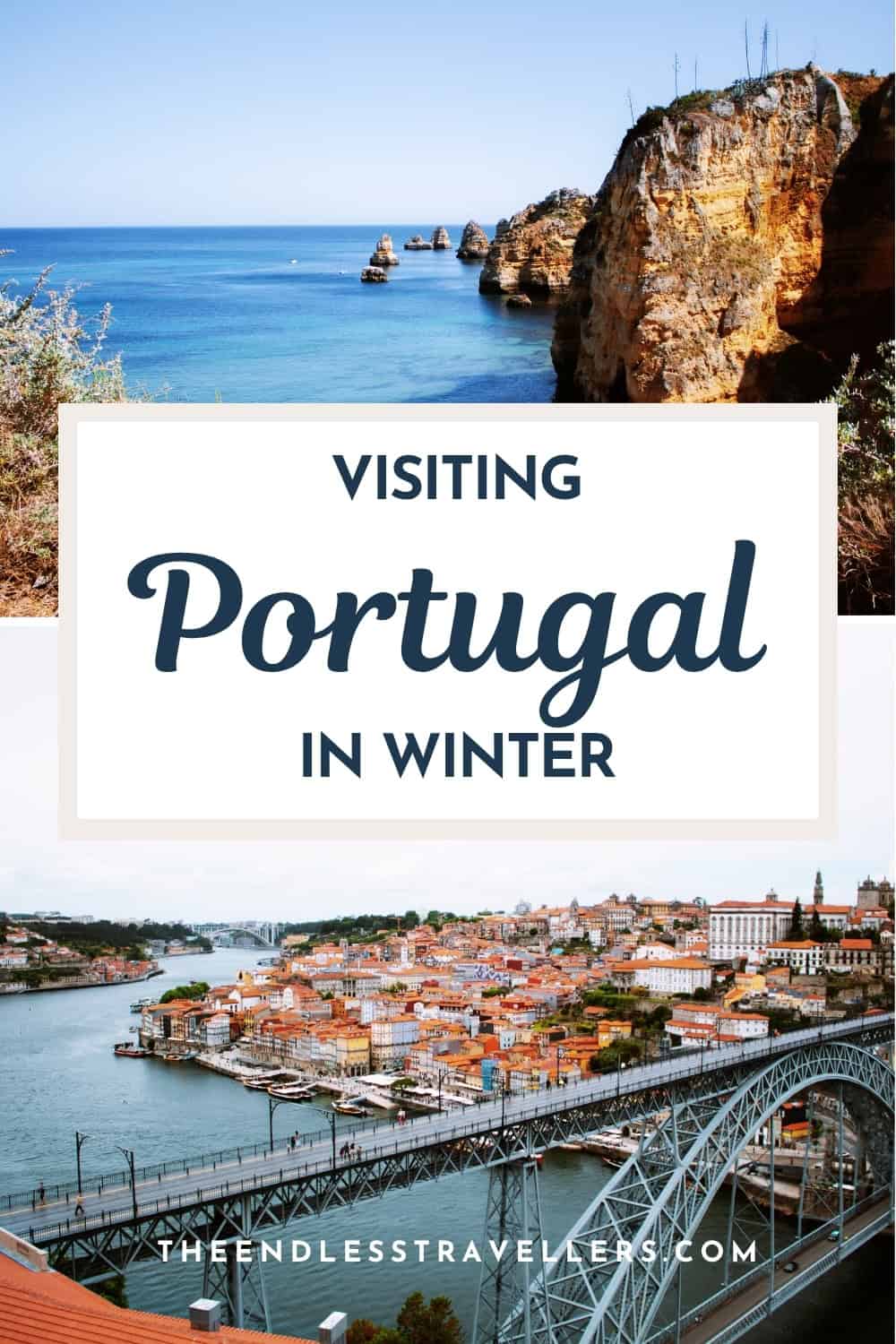Visiting Portugal In Winter: Weather, Where To Go & Best Things To Do
Wondering whether it’s worth visiting Portugal in winter? This is everything you need to know.
After spending a month exploring, Portugal is one of our favourite countries in Europe. Whilst it may be better known as a summer destination, visiting Portugal in winter is something special.
Whether you’re chasing winter sun, a relaxing city break, or snow-covered mountains, Portugal will not disappoint. Here’s everything you need to know about winter in Portugal, from weather and packing tips to the best places to go and things to do for every type of traveller.
Plan Your Trip With Our Favourite Resources
-Book Your Flights: Skyscanner
-Best Accommodation Booking Site: Booking.com
-Book Day Tours Here: Get Your Guide
-Purchase Travel Insurance Here: SafetyWing
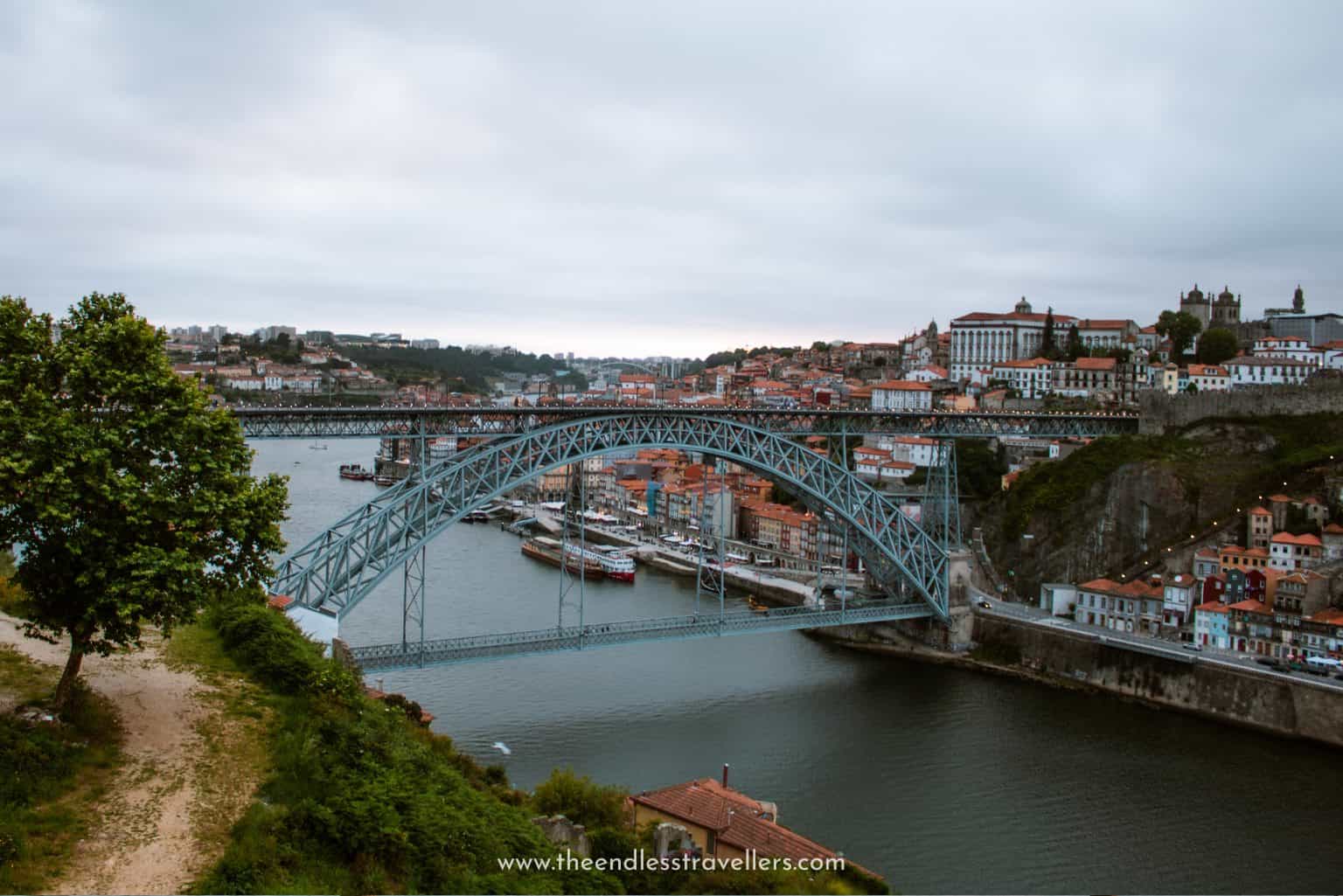
Why Visit Portugal In Winter?
Portugal is often sold as a summer destination, and yes, the summer is great. But if you’re looking for a quieter, more affordable way to experience the country, winter might surprise you.
Winter in Portugal is when the crowds are smaller, the prices are cheaper, and life moves at a slower pace. There’s less pressure to tick things off, more socialising with the locals, and more space to just enjoy where you are.
Here’s all the reasons why you should consider visiting Portugal in winter.
Winter Is The Cheapest Time To Visit
With off-season comes cheaper prices and greater flexibility. Flights, accommodation and car hire are all noticeably cheaper between November and March. You’ll also have a lot more choice, even if booking last minute.
Whilst restaurant prices are generally the same year-round, winter offers a lot more flexibility. Restaurants which may have been booked out in summer will be much quieter in winter.
So, if you’re after a more budget-friendly visit to Portugal, winter is a great time to go.
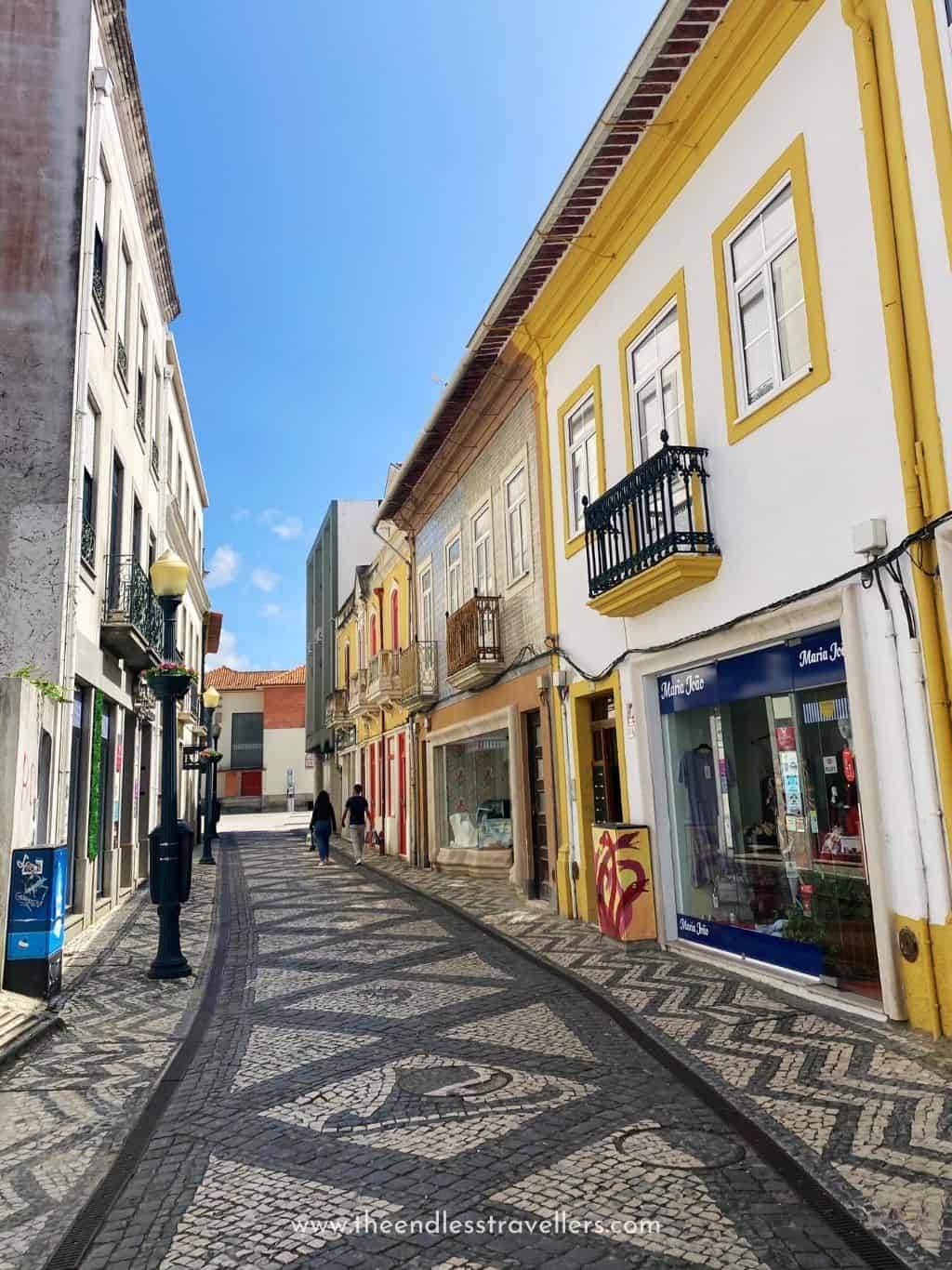
There Are Fewer Tourists
For us, the number 1 reason to visit Portugal in winter is to avoid the huge throngs of crowds that summer brings. Portugal is a very popular country and for good reason, but the summer crowds can become overwhelming at times.
Winter brings a much more laidback pace, with fewer tourists around. This means you get greater opportunities to mingle with the locals, getting to know the culture. You also won’t have to book attractions weeks in advance, and will rarely have to queue to get in anywhere.
So, if you don’t like being surrounded by crowds, winter is a great time to visit Portugal.
The Weather Is Surprisingly Good
Whilst most of Europe sees cold and/or wet winters, the weather in Portugal remains pretty mild. Whilst it may not be beach weather, or the perfect ‘winter sun’ destination, you’re certainly not going to freeze.
The weather does vary across the country, with the north of Portugal getting more frequent rain than the south, the Algarve stays pleasantly warm. With temperatures averaging in the mid to high teens, it’s the perfect weather for exploring, hiking, and relaxing with a good book.
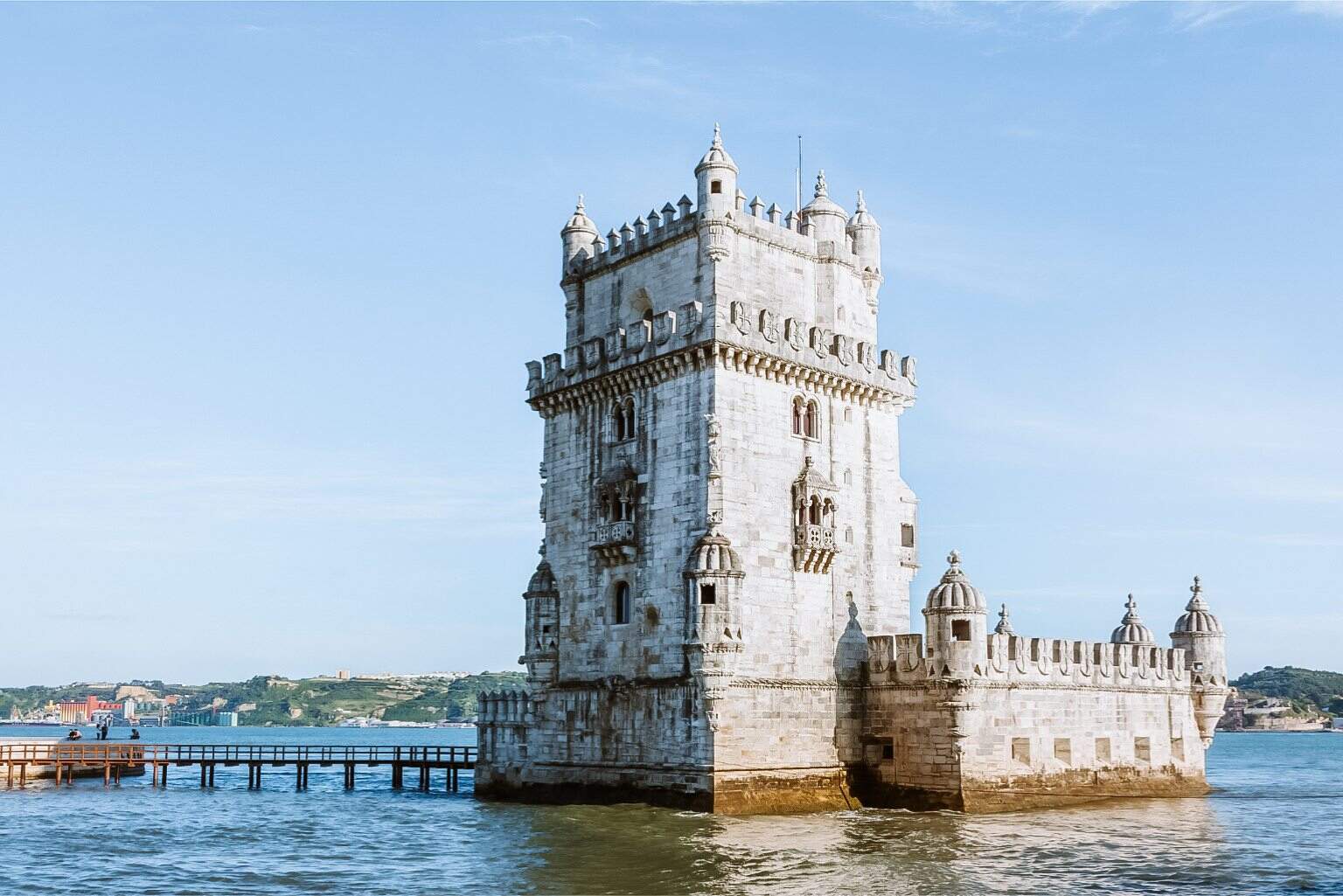
You’ll Get A More Local Experience
Without the constant churn of tourists, things feel more relaxed. Locals have time to chat, and you get to see places as they are, rather than how they’re presented for visitors.
It’s a good time to visit markets, try winter dishes, and see what day-to-day life is actually like in Portugal.
There Are Plenty Of Events & Celebrations
Portugal might feel quieter in winter, but it certainly doesn’t shut down. December brings festive markets to cities like Lisbon and Porto, with lights, food stalls, and small local gifts. Unlike elsewhere in Europe, the Christmas markets are not super crowded (or super cold).
New Year’s Eve usually means fireworks, especially along the coast. Lisbon’s Praça do Comércio and Funchal in Madeira both put on big displays if you’re around for it.
And in February, Carnival takes over towns across the country. Even smaller places like Loulé in the Algarve and Torres Vedras near Lisbon host parades with floats, music, and street parties. It’s fun without being overwhelming, more of a local celebration than a tourist spectacle.
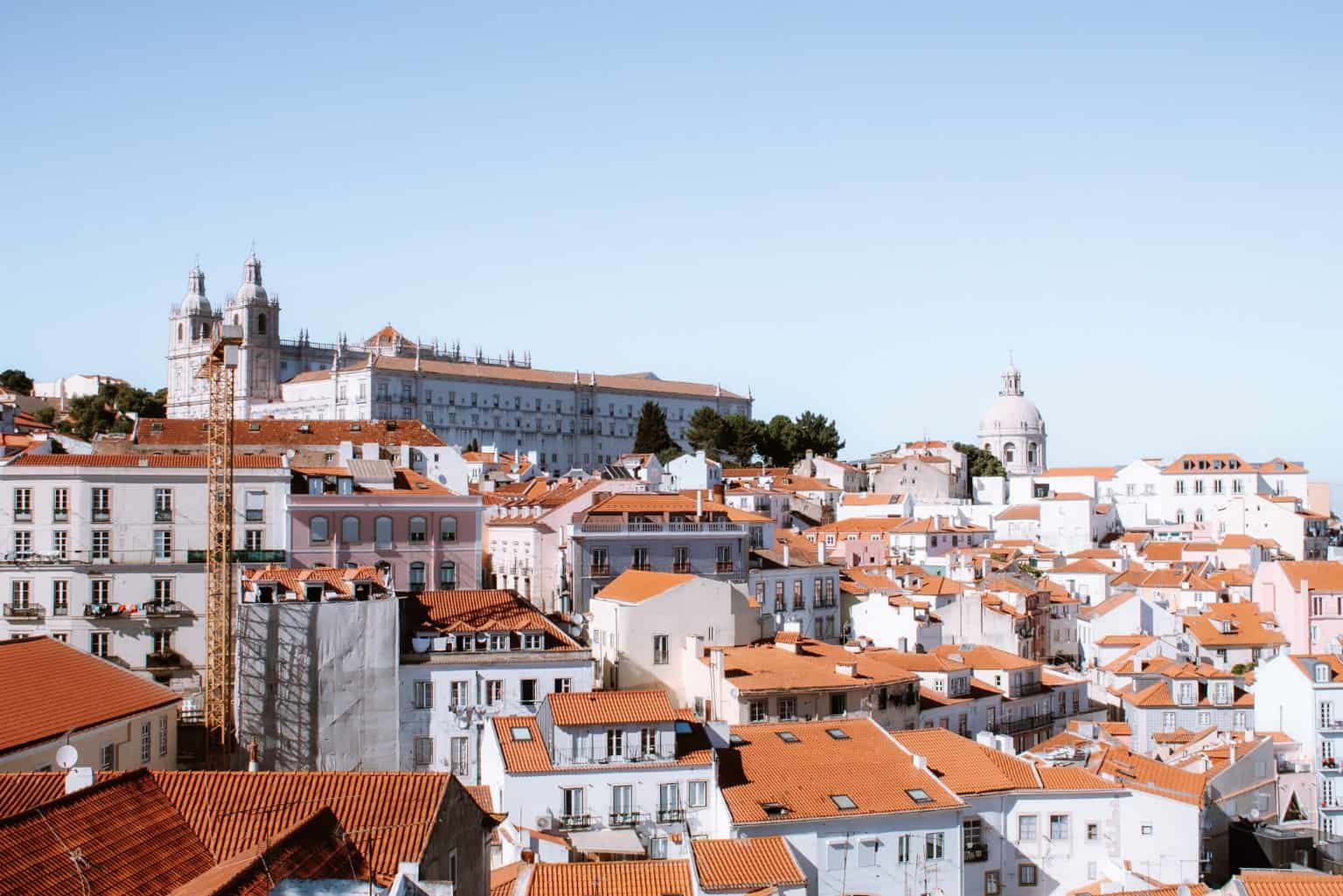
What Is The Weather Like During Winter?
Winter in Portugal is mild by European standards, but the weather can vary quite a bit depending on where you go. If you’re expecting beach days in December, you might be disappointed, but if you’re after blue skies, manageable temperatures, and fewer rainy days than northern Europe, you’re in the right place.
Average Temperatures In Winter
In the north of Portugal (Porto and inland areas), temperatures can dip to around 5–10°C at night, and you’ll get your fair share of rain. In the south, especially the Algarve, daytime highs often reach 16–20°C, and there are plenty of sunny days.
You’ll still need a jacket and layers, but unless you’re heading into the mountains, it’s never freezing.
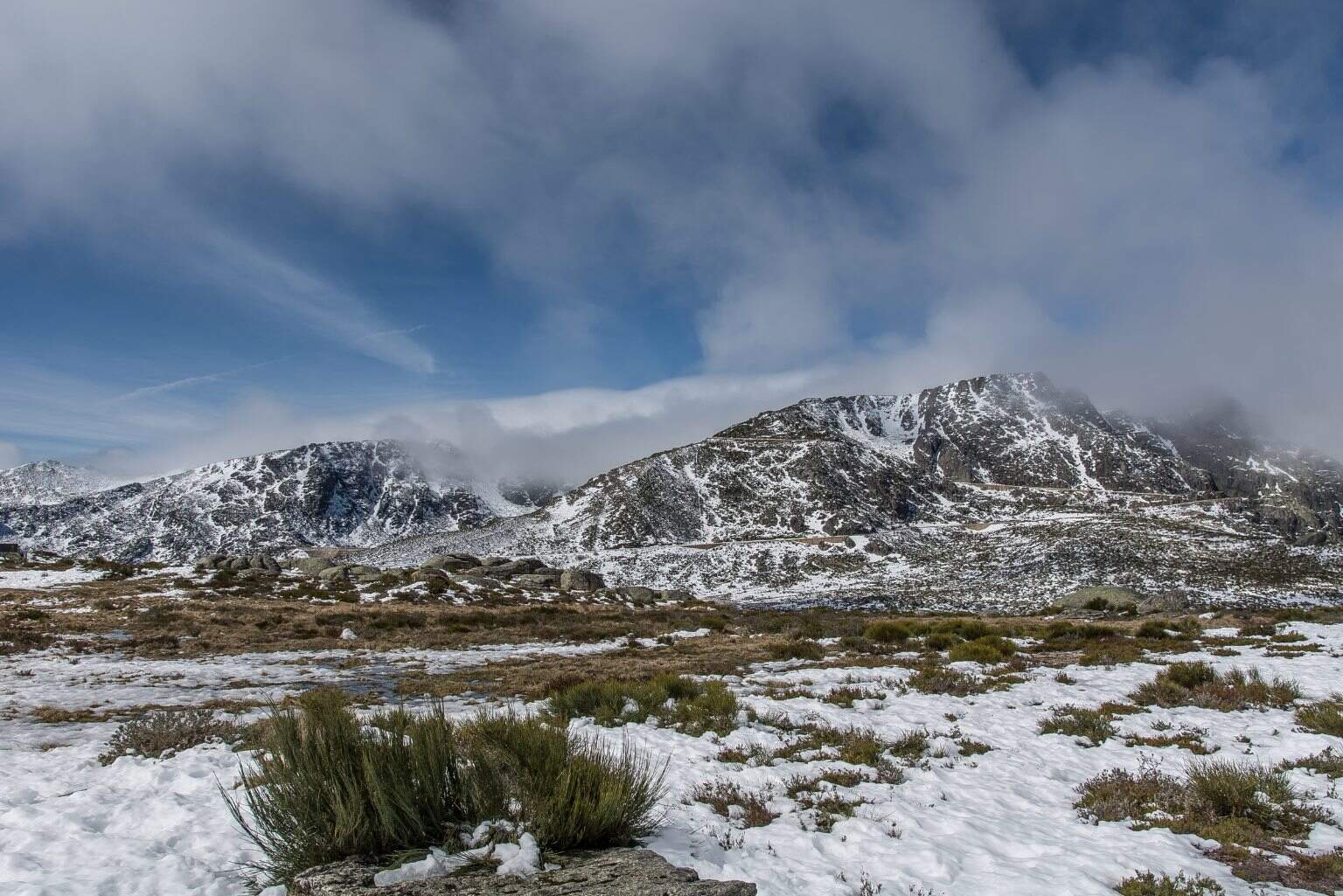
Snow In Portugal
Snow is rare in most places in Portugal, especially along the coast and in the cities. If you do want to see snow, head to Serra da Estrela, the highest mountain range in mainland Portugal. There’s even a small ski resort there, although it’s more for novelty than serious skiing.
For the average traveller, though, snow won’t be part of your Portugal winter experience, and that’s kind of the point really.
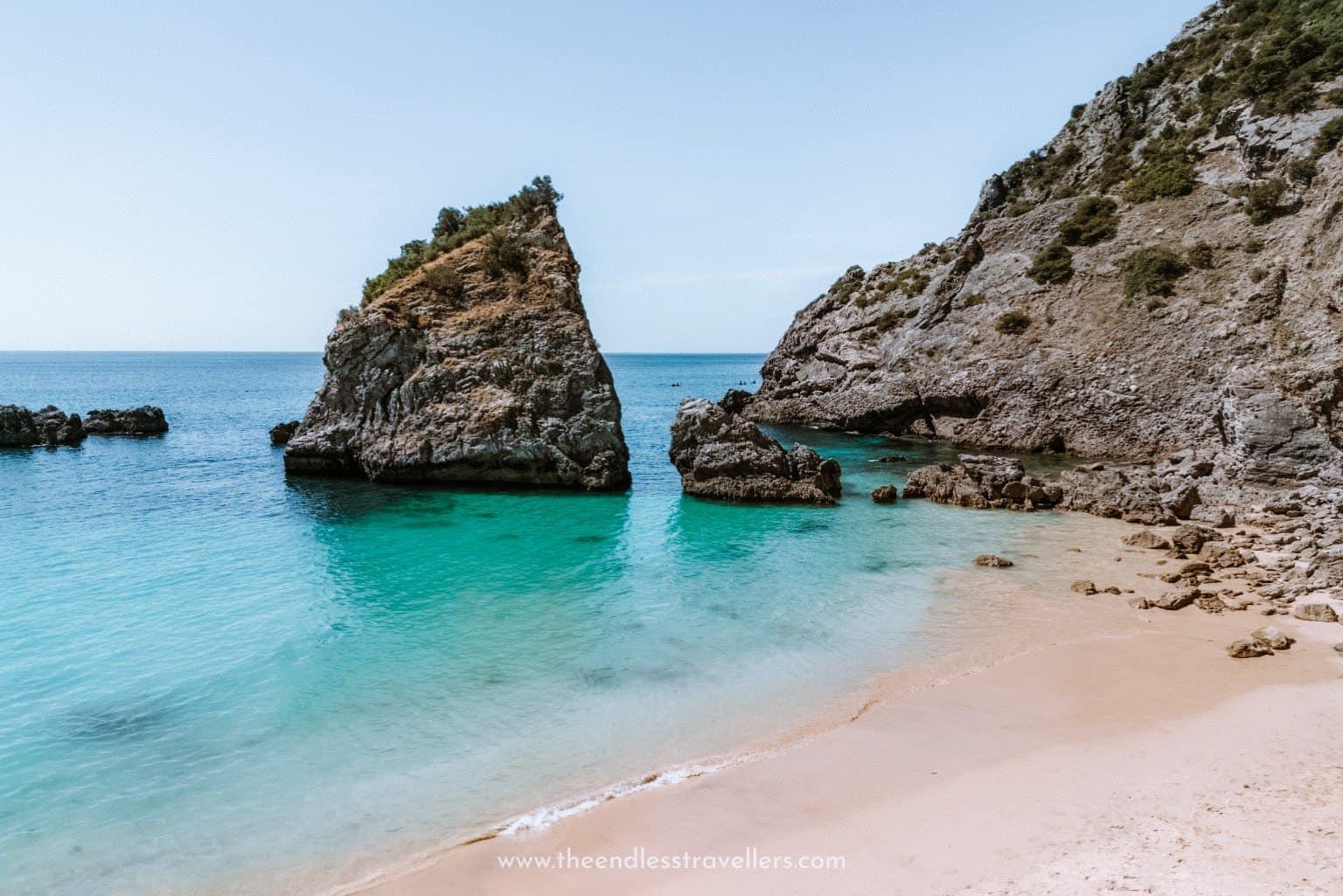
Where To Go In Portugal For Winter Sun
If you’re after a bit of winter sun in mainland Portugal, the Algarve is the best place to be. Towns like Faro, Lagos, and Tavira regularly see temperatures around 17–20°C and plenty of sunshine from November through March. It’s not exactly summer weather, but it’s warm enough to sit outside with a coffee, walk on the beach, and enjoy the slower pace without wrapping up in layers.
Further north, Lisbon still gets sunny days but tends to be windier and cooler. Porto and the Douro Valley are much colder, and rain is more frequent. Whilst it’s a good time for wine tasting and indoor activities, we wouldn’t recommend it if you’re after a warm sunny holiday.
Best Places To Visit In Portugal In Winter
One of the best things about Portugal is how varied it is. Even in winter, you can go from sunny coastlines to misty mountains in just a few hours. We travelled from north to south, and each place had something very different to offer.
Here are some of the best places to visit in Portugal in winter, whether you’re chasing warmth, culture, or just a quieter version of the country.
The Algarve (Faro & Lagos)
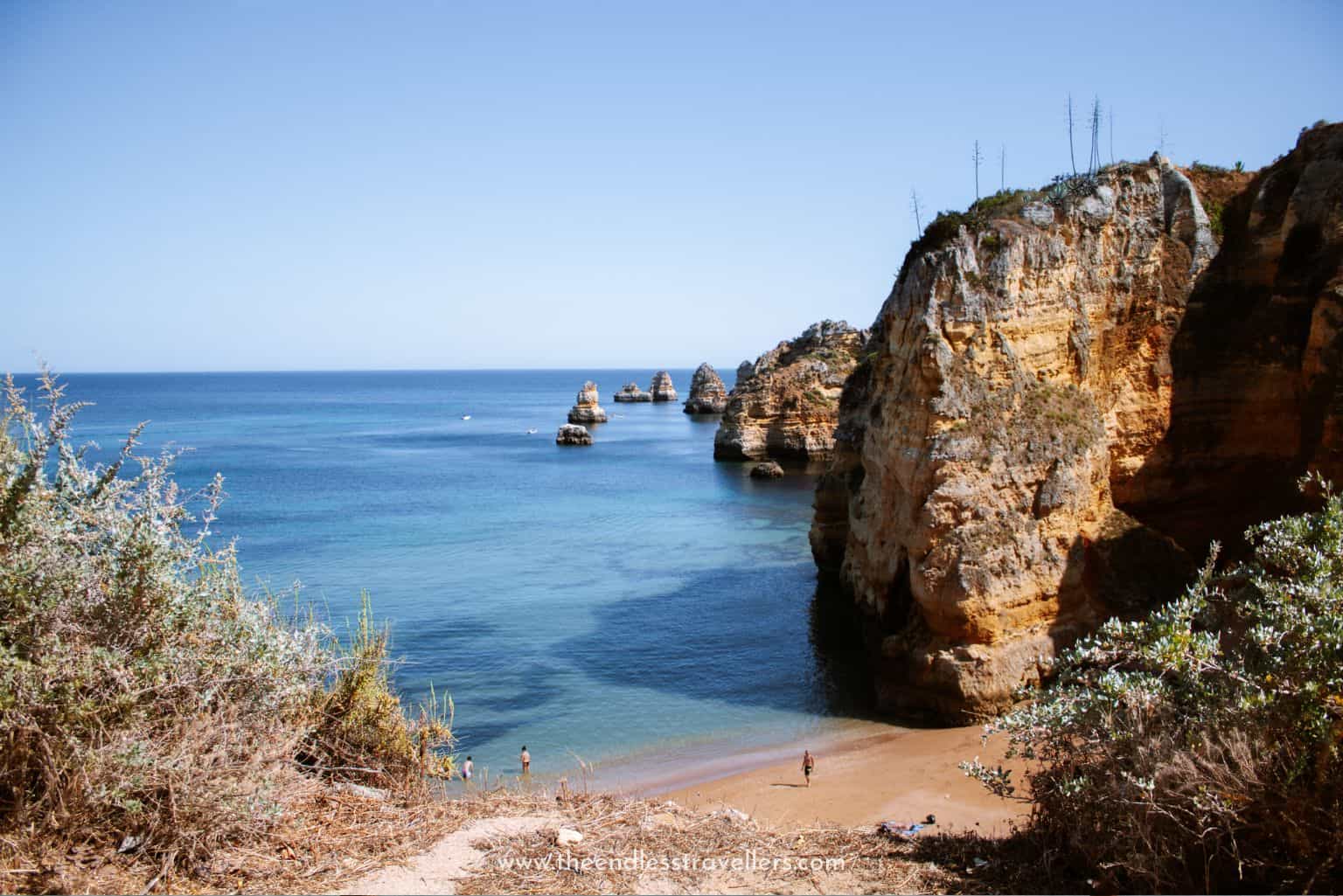
If you’re looking for the warmest weather, head south. The Algarve is the sunniest region in Portugal during winter, with regular blue-sky days and daytime highs around 17–20°C.
We spent a good chunk of our trip here, walking along coastal cliffs, exploring sleepy towns like Tavira and Olhão, and enjoying peaceful beaches with almost no one around. Most tourist shops and some restaurants do close for the season, but the bigger towns like Faro and Lagos still have a solid year-round vibe, just without the chaos of summer.
It’s also a great base if you’ve hired a car, with loads of scenic drives and nature spots to explore nearby.
Lisbon
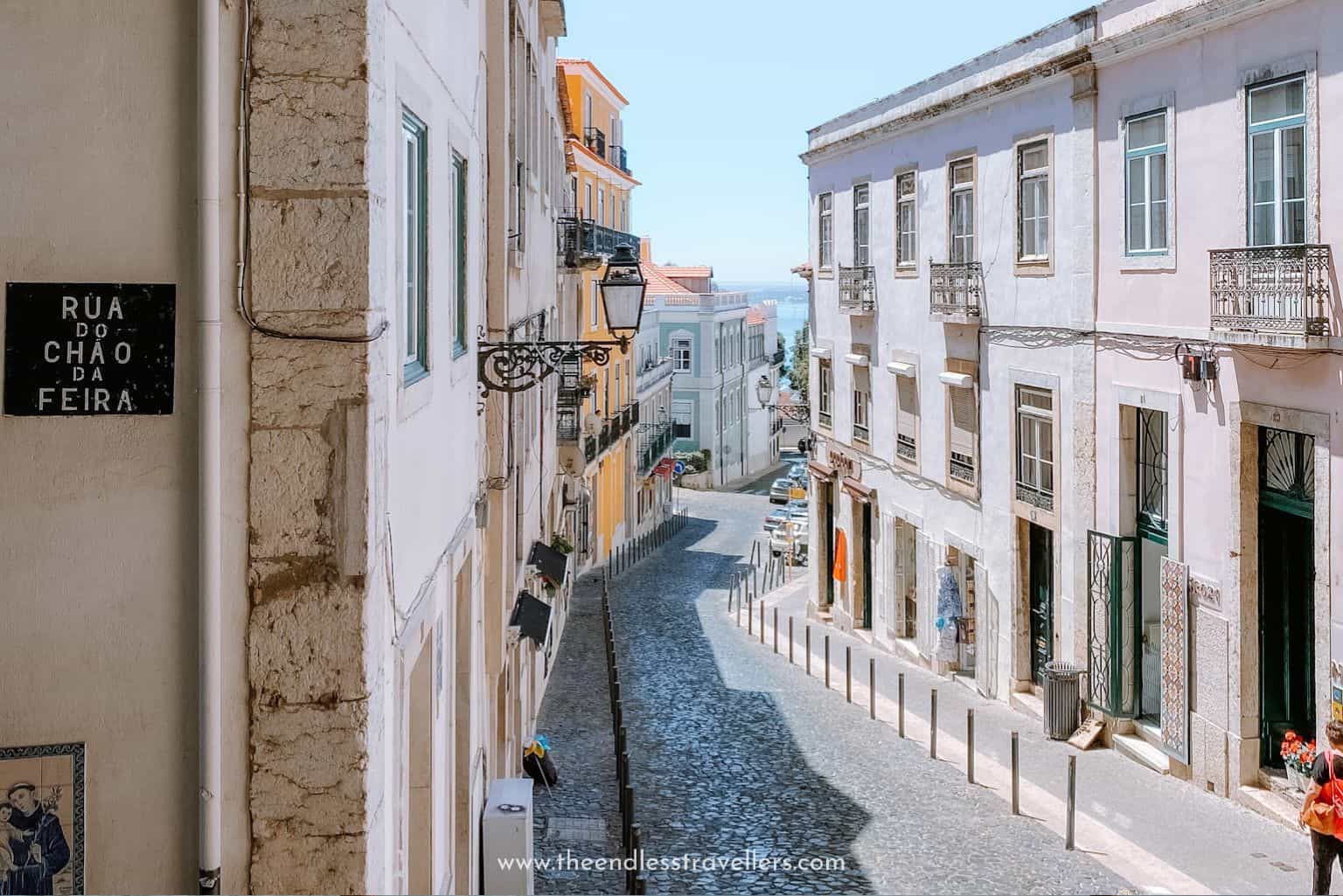
Lisbon makes a great winter city break. It’s hilly, walkable, and packed with viewpoints, historic trams, and warm pastel de nata when you need a break. It was one of our favourite places in Portugal, though it can be incredibly busy in summer.
Winter is a much better time to explore the city without the long queues. You can walk straight into places like Jerónimos Monastery and the MAAT, which usually have crowds wrapped around the block.
From Lisbon, you can easily take day trips to Sintra, Cascais, or the beaches at Costa da Caparica, though it’s probably not going to be warm enough to swim or sunbathe. Regardless, even in January, you can sit outside cafés in the sun, though bring a jacket to combat the cooler sea breeze.
Porto
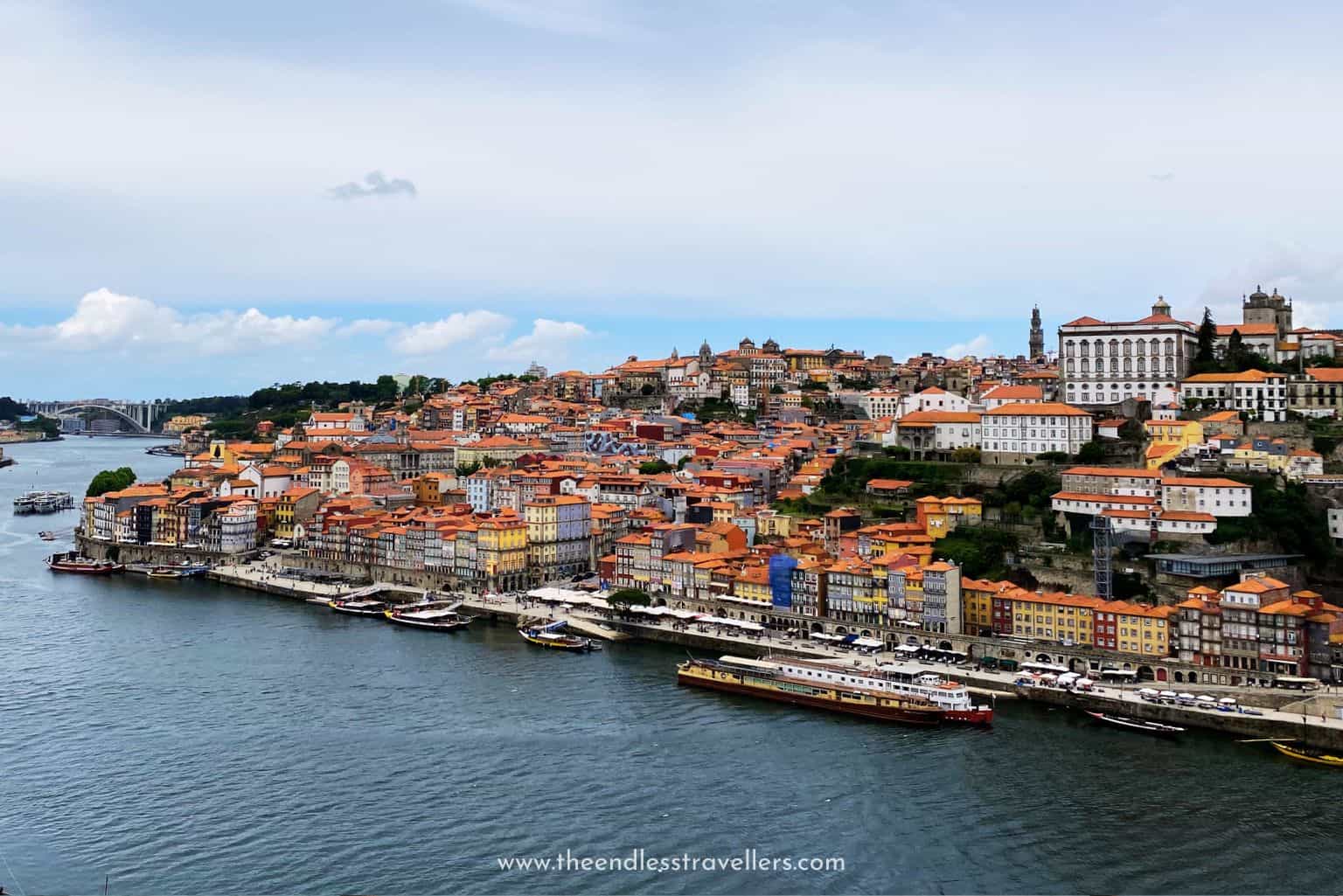
Porto is a lot wetter and can be a little chilly in winter. The weather is a little unpredictable, but it creates this moody atmosphere that adds something to the city most people never get to experience. Don’t let the wetter weather put you off, because this is our favourite city in Portugal and we still recommend visiting in winter.
Winter in Porto means slowing down. On sunny days, you can wander through the beautiful Ribeira district, and on rainy days you can duck into a wine cellar on the Douro, pop into a bookshop, or simply sip a coffee in a cute café. There are plenty of things to do in Porto in winter, no matter the weather.
Other Smaller Towns
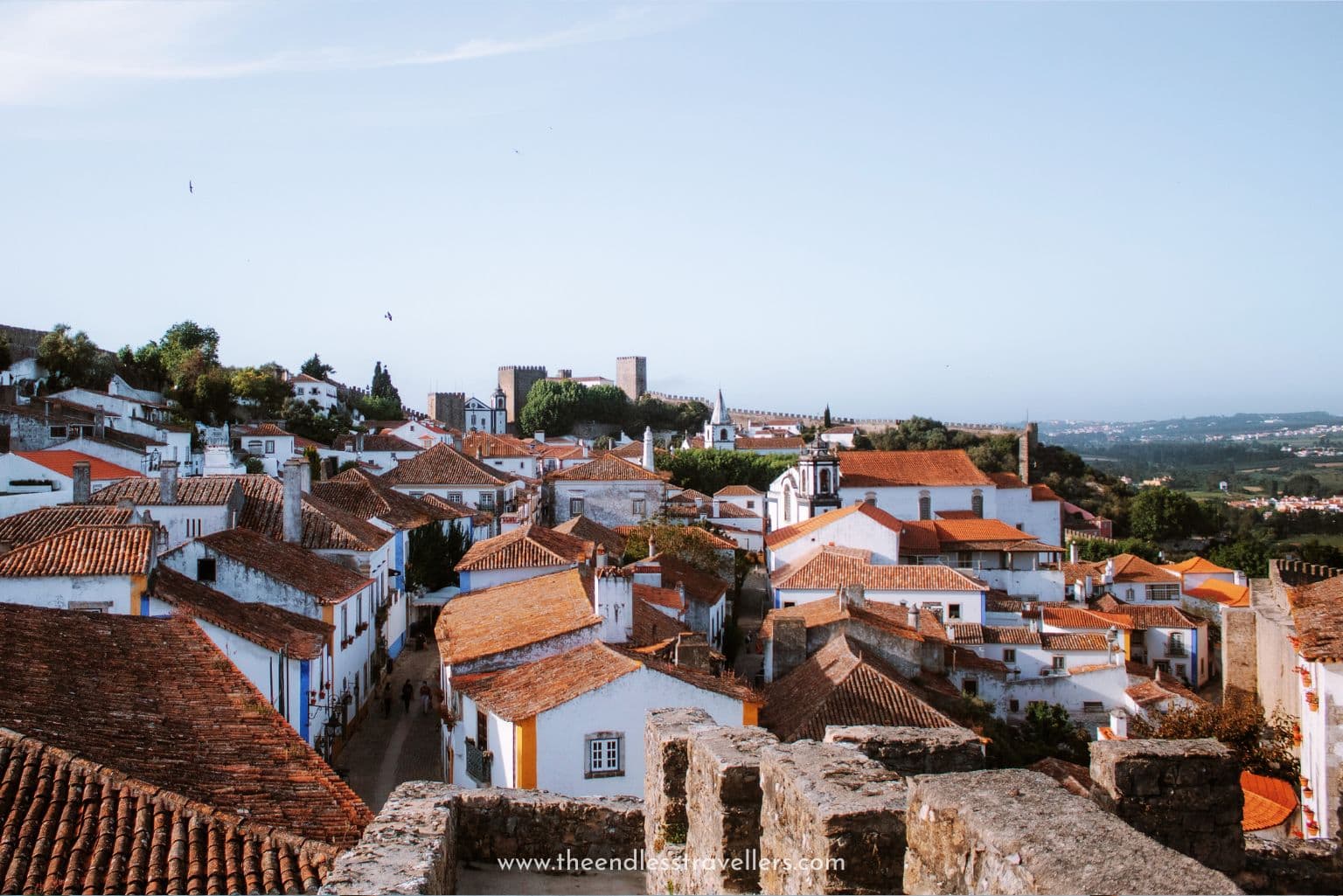
If you’re planning to explore a bit beyond the major cities and the Algarve, winter is a great time to do it. Places that are often packed in peak season feel totally different. They’re quieter, more authentic, and far easier to enjoy at your own pace. Some of our favourites include Évora, Coimbra, and Óbidos.
Évora is a town filled with history, with cobblestoned streets, traditional white-washed buildings, and one famously eerie sight in particular – the Chapel of Bones. Winter is a great time to visit as prices are lower and there are virtually no crowds.
Coimbra is a university town as old as Oxford, halfway between Porto and Lisbon. Whilst it’s quieter in the off-season, it’s stilled filled with local life. It’s a very beautiful city to explore.
Óbidos is smaller, but if you’re after a classic medieval town experience, this is the one. The castle walls, cobbled streets and whitewashed houses are incredibly photogenic. Around Christmas, there’s even a full-on winter market with lights, stalls, and local treats. You can even take a day trip to Óbidos from Lisbon.
Best Things To Do In Portugal In Winter
Whilst winter in Portugal brings a slower pace of life, the country still has plenty of things to do. In fact, some activities are best done in winter, with the cooler temperatures and fewer crowds offering a far more enjoyable experience.
Here’s a few things we’d recommend doing in Portugal in winter.
Explore Sintra Without The Crowds
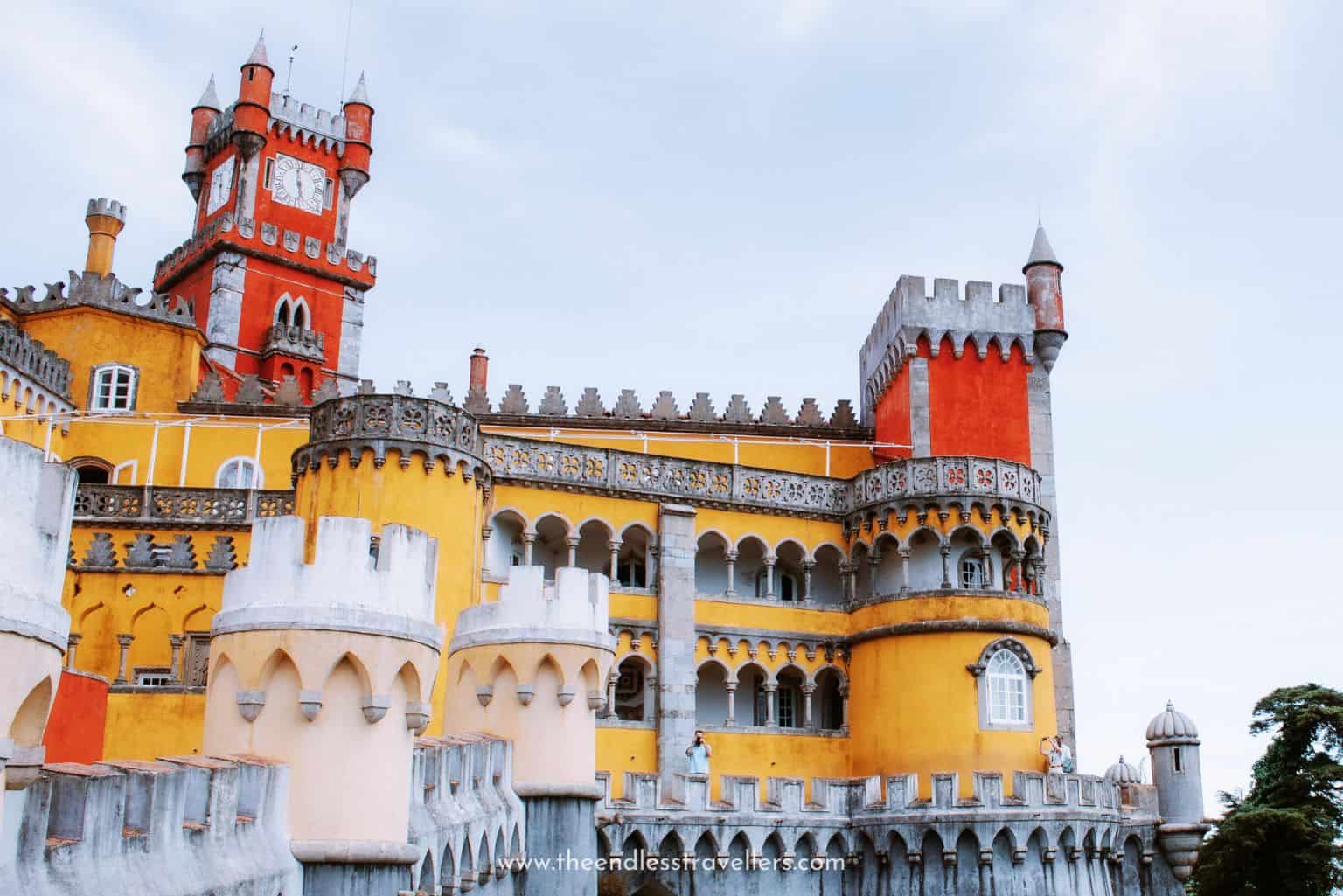
Sintra is one of the most popular tourist attractions in Portugal, meaning it is packed with crowds in summer. In winter, however, it’s far more peaceful and enjoyable to explore. In fact, you can visit Pena Palace with virtually no one else around.
You won’t have to queue so much, you won’t have to wait to take photos, you won’t have to fight through tour groups. You can just explore at your own pace. Because of this, we actually think winter might be the best time to visit Sintra.
Tip – Get off-the-beaten-path and head to Óbidos for the day! The quiet hilltop castle offers amazing views of the surrounding countryside, and it feels like the most laidback village.
Go Hiking In Cooler Temperatures
Portugal has some great hikes, and winter is definitely the best time of year to enjoy them. The Seven Hanging Valleys Trail in the Algarve is a must-do, and in winter, it’s almost completely empty. In summer, the trail is hot and exposed to a lot of sunlight, meaning it’s not as enjoyable as hiking it in winter.
Further north, there are great hikes in Peneda-Gerês National Park and around Serra da Estrela, though you’ll want proper layers and waterproofs if you’re heading that way. The north of Portugal, and particularly in the mountains, can be cold, wet, and even snowy, so make sure to pack accordingly.
Visit Winter Markets & Festivals
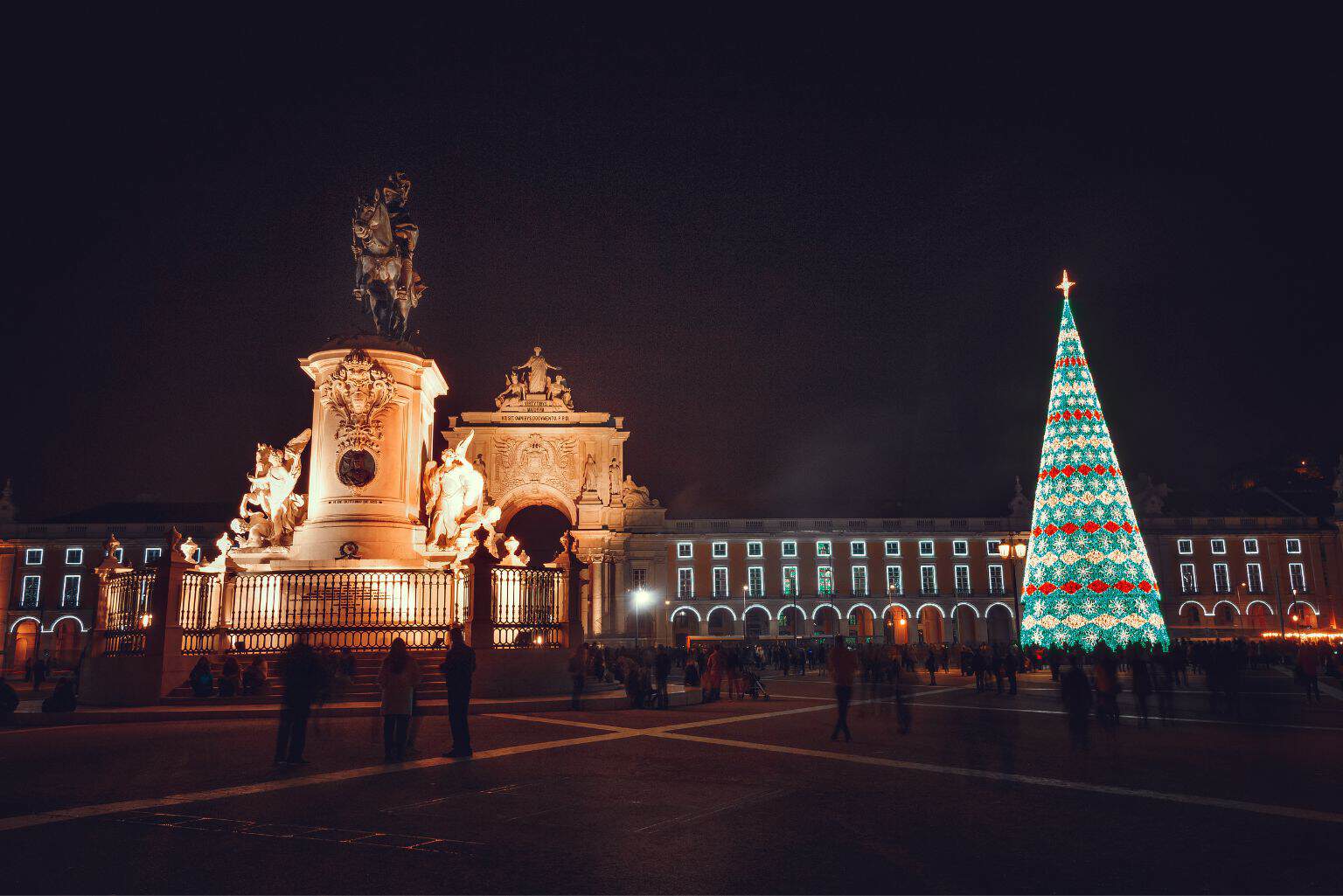
Winter in Portugal might be quieter, but there’s still plenty going on. From Christmas lights in Lisbon to small-town Carnival parades, the colder months bring a more local, festive energy that’s easy to enjoy without the crowds.
Markets tend to be modest but atmospheric. Expect roasted chestnuts, mulled wine, and handmade gifts. If you’re here in February, Carnival is a highlight, especially in the towns that go all out for it.
Some of the best winter events in Portugal include:
- Lisbon & Porto Christmas markets – festive stalls, lights, food and gifts
- Óbidos Vila Natal – full-on winter festival in a medieval town (mid-Dec to early Jan)
- Carnival in Loulé (Algarve) – traditional parades with floats and costumes
- Carnival in Torres Vedras – one of Portugal’s liveliest street parties
- New Year’s Eve fireworks in Lisbon – especially at Praça do Comércio
- Festa das Fogaceiras (January, Santa Maria da Feira) – a local bread-and-faith festival with deep roots
Try Snowshoeing In Serra Da Estrela
If you’re keen for something a bit different, head up to Serra da Estrela and try snowshoeing. It’s an easy and fun way to explore Portugal’s highest mountain range in winter. The landscape up there feels totally different from the rest of the country, with pine forests, granite outcrops, and snow-covered valleys.
You don’t need to be super fit, and there are guided tours available for all levels. It’s especially great if you want to get off the beaten path and see a side of Portugal most people miss.
Slow Down & Stay longer!
Winter in Portugal is great for longer stays, especially if you work remotely or just want to escape the cold elsewhere. Airbnbs are cheaper, cafés are quieter, and the pace is more relaxed. We found it much easier to settle into a routine in places like Lagos and Coimbra, without the constant buzz of summer travellers.
It’s not a rush-around kind of trip, and that’s exactly what makes it spo enjoyable.
What To Pack For Winter In Portugal
Portugal in winter doesn’t require full-on snow gear, but you will want to be prepared for mixed weather, especially if you’re visiting different regions. The south can be warm and sunny one day and breezy the next. Up north, it’s cooler and rain is more likely.
Here’s what we’d recommend packing for winter.
- A lightweight waterproof jacket – especially for Lisbon, Porto and the north
- Layers – T-shirts, jumpers and a warm fleece you can add or remove as needed
- A compact umbrella – handy in cities where sudden rain showers are common
- Comfortable shoes for walking – preferably waterproof
- A scarf – helpful for wind or cooler mornings
- Small daypack – useful for packing layers, snacks, water and anything you might buy from the markets!
- Swimwear – if you’re heading to the Algarve, some days might be warm enough for a paddle or pool
- Adapters for European plugs – Portugal uses the standard EU type C and F plugs
FAQs
Still have a few questions about visiting Portugal in winter? We’ve answered the most common questions below.
Is Portugal Worth Visiting In The winter Months?
Yes, especially if you prefer slower travel, smaller crowds, and milder weather. It’s not the time for guaranteed beach days, but it’s ideal for exploring cities, coastal walks, and budget travel. The country feels more local, and the lack of summer heat makes it easier to enjoy full days out without needing a break in the shade.
Where Is The Warmest Place In Portugal In Winter?
The Algarve is the warmest region, particularly around Faro, Lagos, and Tavira. You can expect days of around 16–20°C and sunshine, perfect for walking, outdoor cafés, and even the odd beach picnic. Evenings are cooler, but it’s still the best area for winter sun.
Is Portugal A Good Winter Sun Destination?
Well, yes and no. It depends what you’re after. If you want to sunbathe on the beach or by the pool, probably not. The weather in the Algarve is pleasantly warm, especially compared to more northern parts of Europe, but not sunbathing weather.
Is Porto Too Cold In Winter?
Porto is cooler and wetter than the south, with temperatures between 5–14°C. That said, it’s a great city to explore slowly, with plenty of indoor spots to pop into if it rains.
Wrap Up
Portugal is one of those special countries that makes a great year-round destination. Winter is a fantastic time to visit Portugal, with fewer crowds, cheaper prices, and pleasant weather, particularly in the south.
From quiet hikes and festive markets to slow coffees in beautifully tiled cafés, winter gives you a more grounded version of the country. If you’re after a slow, local feel with warm pleasant weather, winter might just be the best time to go.
PREPARE FOR YOUR TRIP
OUR TRAVEL RESOURCES
Fly
Tours
Found This Post Helpful? Pin It For Later!
